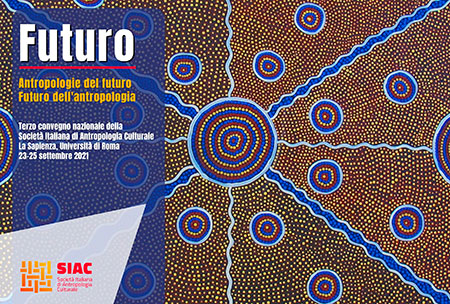News
The singing house: an example of deep integration between Western scientific medicine and animist ontologies

Alberto Dubbini, independent researcher specializing in the anthropology of religions, will participate in the Third National Conference of the Italian Society of Cultural Anthropology - SIAC with a presentation in italian focused on the Takiwasi Center and entitled: "The singing house: an example of deep integration between Western scientific medicine and animist ontologies".
The Third National Conference of the SIAC will take place from 22 to 25 September 2021 in Rome and will deal with the theme "Anthropologies of the future, future of anthropology". Specifically, the lecture by Alberto Dubbini will be presented within the panel “The challenges of time. Multiple temporalities and ethnographic research beyond the human”.
Abstract
This intervention wishes to stimulate an open reflection on the possibility that in modern Western societies healthy experiences and relationships with the world and non-humans can be achieved that deviate from the dominant naturalism or integrate effectively with it.
Takiwasi (in Quechua "the singing house" ) is a therapeutic community for the rehabilitation of drug addicts located in the Peruvian Amazon. Here, for about thirty years, Western scientific medicine, psychotherapy and community life have been integrated in an effective and profound way with traditional Amazonian medicine, to heal patients suffering with drug addiction. The term traditional Amazonian medicine in Takiwasi is used to define a therapeutic art widespread in the Peruvian Amazon, which has developed through centuries of contact between various Amazonian populations and between them and Christianity.
It is a form of religious experience and a medicine based on the ritual relationship between human beings, certain plant species defined as teacher plants, and the spirits of the latter. As some studies suggest, the promising therapeutic results obtained at Takiwasi could be linked precisely to a profound redefinition of the relationships between the human being, non-human entities, and the dimension that is usually inaccessible to naturalistic and scientific observation. Considering that drug addiction is a specific problem of modern Western societies, the case of Takiwasi offers a chance for valuable critical reflections on the foundations of naturalist cosmology and its correlated phenomena of addiction and consumerism, which are evidently at the basis of the current ecological crisis.
More information about the event: Antropologie del futuro, futuro dell'antropologia